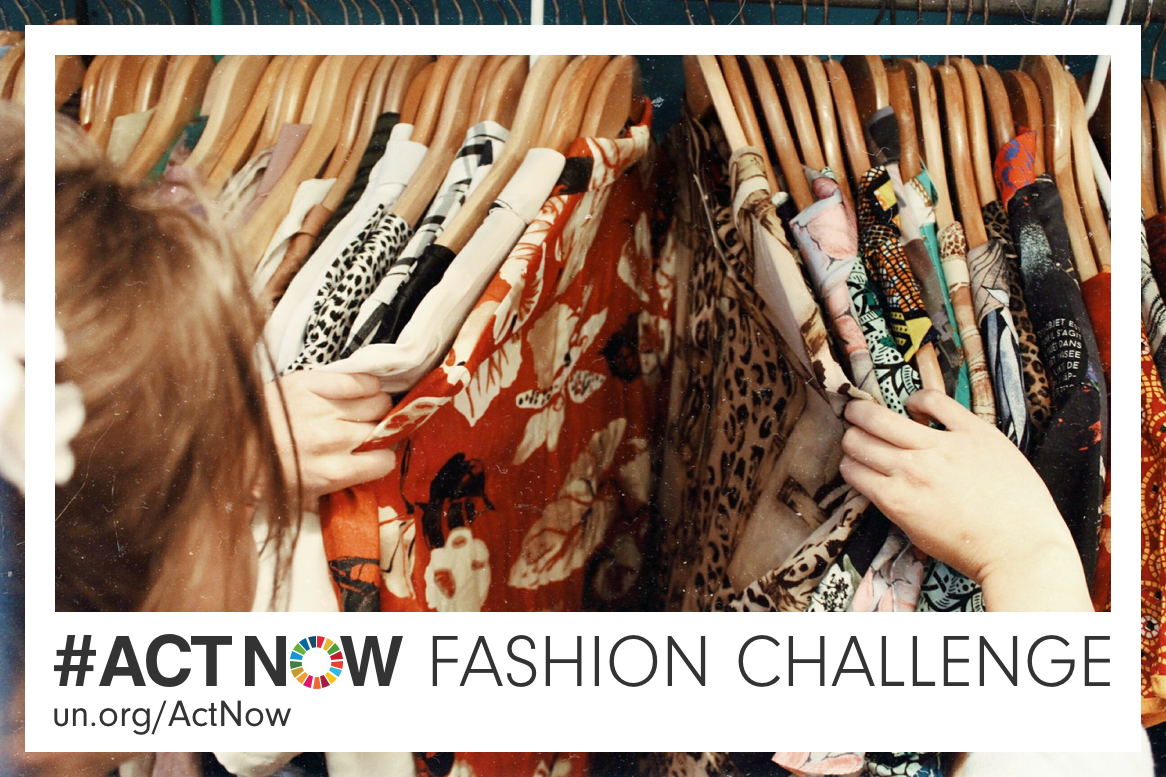Climate action, at the individual level, involves changing habits and routines by making choices that have less harmful effects on the environment. But thinking about how to combat climate change can be overwhelming. “How can I influence system-wide changes or influence big businesses?” you may ask yourself. One important industry where we can make an impact is fashion.
In the past, the only conscious decision we made when choosing clothes was a sartorial one: Were our clothes flattering, trendy, expressive, or appropriate. It’s not likely that many pondered how much water it takes to make a cotton shirt – 2,700 liters – or to produce a single pair of jeans – 9,982 liters. But mindsets are changing as consumers and industry leaders become more informed.
The apparel industry consumes more energy than the aviation and shipping industry combined[i], accounting for 10 per cent of the global carbon emissions[ii]. Chemicals from dyes make their way into the environment, polluting the air, water, and also harming marine life. The fashion industry:
- Produces 20 per cent of wastewater[ii]
- Is responsible for 8-10 per cent of the world’s greenhouse gas emissions[ii]
- $500 billion of value is lost every year due to clothing underutilisation and lack of recycling[ii]
Despite the grim statistics, producers and consumers of fashion recognize that the industry needs to change. In the lead up to the Climate Action Summit on 23 September 2019, the fashion industry has recognized that it has a crucial role to play in contributing to the realization of the goals of the Paris Agreement. Previously, in December 2018, 43 major brands and suppliers signed the Fashion Industry Charter for Climate Action[ii] under the auspices of the United Nations. And the goal is simple: reaching net zero greenhouse gas emissions by 2050. Other initiatives in the industry are moving in the same direction. This goes hand-in-hand with consumers’ increased awareness of the choices and contributions they can make when we all decide to act now.
With the aim of raising awareness and promoting lasting behaviour change when it comes to our fashion choices, the United Nations has started rolling out the #ActNow Fashion Challenge on 6 August.
The challenge is part of the ActNow Climate Campaign, which aims to educate and encourage individual behavioral change, mainly by adjusting consumption patterns. ActNow invites people around the world to step up their climate actions and join the movement to build a better future for all.
The ActNow fashion challenge invites people around the world to make their individual contributions to zero-waste fashion. The challenge is to share each zero-waste fashion action on social media using #ActNow and log it on un.org/actnow.
Need some ideas to get started? Here are some every day zero-waste fashion actions you can take:
- Curb your consumption. Consider whether you really need another pair of jeans, a new t-shirt or a pair of sandals. Also, prior to purchasing, ask yourself if you’ll wear it a minimum of 30 times. If the answer is no, then forget about it and move on with a lighter heart—and carbon footprint.
- What’s old is new again. Shop in vintage or thrift shops, in fact, urban areas generally have a wide range of choices. Otherwise, you can shop online.
- Reduce water waste. Wash clothes less frequently. Often, we tend to wear something once and wash it whether it’s clean or not. If you’ve had a spill on your clothing, try spot-cleaning.
- Spread the love. Donate your unwanted clothes to charity organizations or take them to consignment shops
- Skip the landfill. Many retailers offer recycling programs. Some will even purchase, refurbish, and resell gently worn garments.
- Upcycle for a new look. Rework the fabric from old clothes into something new, e.g., a pillow case, quilt, or doll clothes.
- Share your #ActNow story on social media. The world needs to know you’re fighting the good fight.
And finally, share your good environmental habits with your family, friends and colleagues. Don’t forget to log your zero-waste fashion actions in the ActNow bot.



